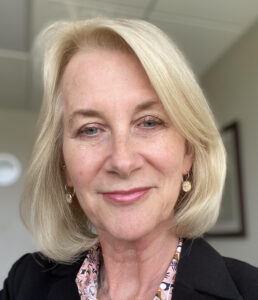Helping those in need is ‘very fulfilling.’ Annual mean wage of speech language pathologists in Rochester is $76,400
By Deborah Jeanne Sergeant
Speech language pathologists do far more than teach preschoolers how to say the letter “r.” They assist with all sorts of health issues and work in many different settings with patients across the lifespan.
Regardless of where and with whom they work, speech language pathologists help patients. That is what drew Suzanne Johnston to the profession. Now working at Speech and Communication Services in Rochester, Johnston felt as a high school student that helping others would be part of her career. At first, she thought it would be working with people who are deaf and hard of hearing. However, the more she learned about speech language pathology, the more she realized that was the role she desired.
After completing her master’s degree at UB, she finished a year of fellowship under a certified speech language pathologist before receiving her own certification and licensure in 1984.
“You have to be a good communicator, have a good command of the language they’re practicing in, and to like working with people,” Johnston said. “I’ve met some people who midway decided they didn’t like working with people.
“I think they need to have questioning minds and be good diagnosticians and resourceful.”
Oftentimes, speech language pathologists may be the only one in their profession in their community, or only one of a handful of practitioners in their hospital. Staying in touch with others in the profession can help reduce risk of isolation.

As she works in private practice—not a healthcare, long-term care or school setting—Johnston sees a variety of patients from toddlers to adults. She focuses on speech issues such as articulation, fluency, stuttering disorders, cognitive disorders or progressive neurological issues, motor speech challenges and, as her specialty, aphasia. In the medical setting, speech language pathologists may help patients with swallowing disorders, hearing disorders and voice therapy.
Anyone interested in becoming a speech language pathologist should try shadowing one in the desired setting such as a school, nursing home or hospital or perhaps auditing a class to learn more about the profession.
“One of the things I did when I was figuring out what I wanted to do is I volunteered my time,” Johnston said. “This day and age it’s not as possible, but if you can volunteer in clinics or in settings where you can work with people, that’s great. You can figure out if this is what you want to get into.”
As with any health or helping profession, burnout presents a big challenge. Talking with colleagues, joining a professional organization and taking time for self-care helps.
While the profession has little room for advancement, some larger healthcare facilities may have a senior or managerial role for a speech language pathologist. Johnston considers her solo practice as the ultimate advancement.
“In private practice, I do what I want,” she said. “That’s hard to do right out of school. You need a broad range of experiences and expertise. This is another way you can move up.”
She finds her role as a speech language pathologist very fulfilling.
“I feel like one of the very important things I offer people is hope,” Johnston said. “People who come to me are in need of something. If I can offer them the means to do that and hope for the future; that to me is a really valuable role.”
The annual mean wage of speech language pathologists in Rochester is $76,400.
